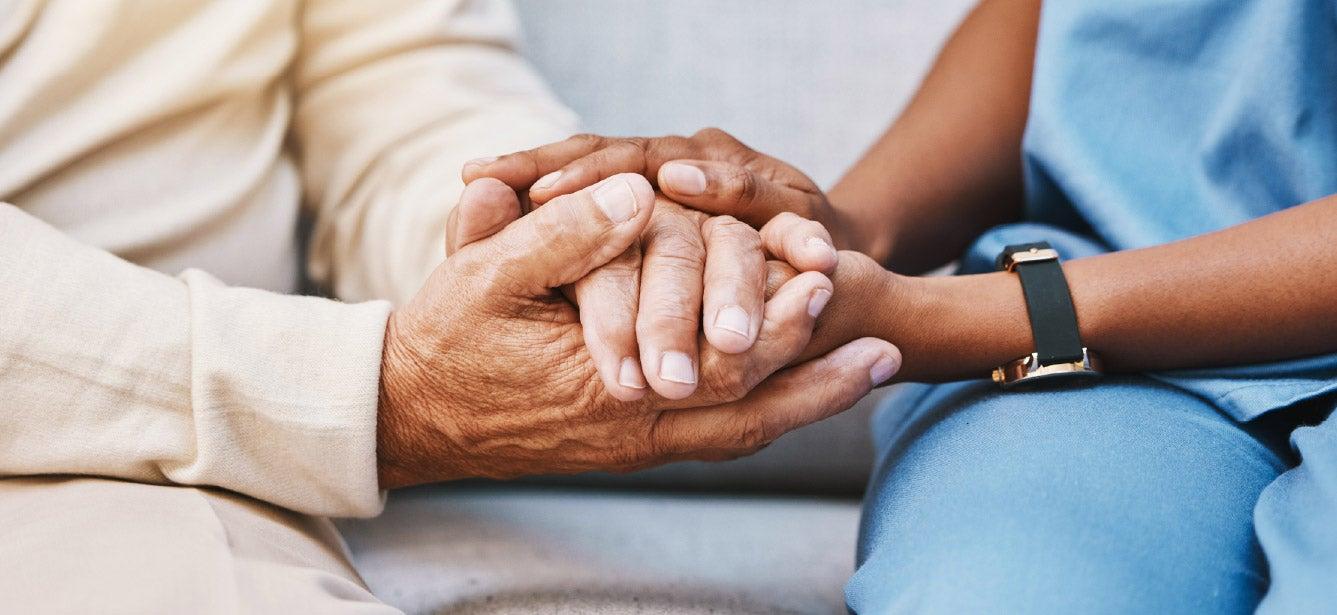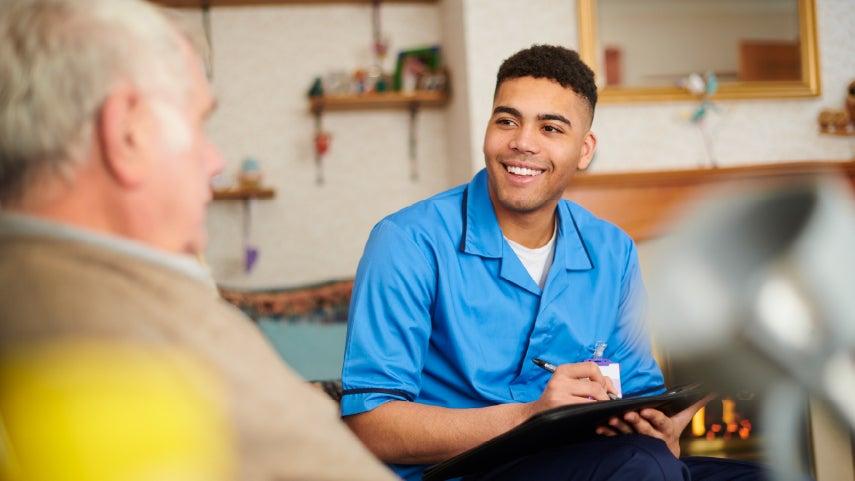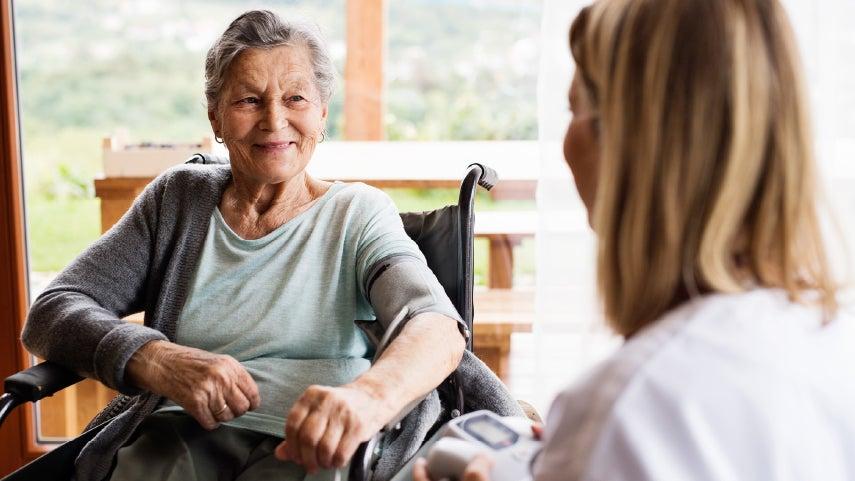
Related Topics
Isaac was just beginning to enjoy his semi-retirement. He had lived in the same town his entire life and had several childhood friends in the area. They all got together three mornings a week for coffee. Isaac liked the coffee shop so much that he even took on a part-time job there, serving coffee and chatting with the regular customers. Then, one day, his partner suffered a stroke. Practically overnight, Isaac found his world turned upside down. Amid the confusion of everything he learned at the hospital over the next few days, one thing was clear: he would need to become the full-time caregiver for his life partner.
There are thousands of stories like Isaac’s.
Becoming a caregiver can be an unexpectedly jolting experience, often arising with little to no warning. It can feel like a shock to the system. The shock stems not only from the sudden responsibility of caring for another, but also from the emotional, physical, and mental demands that caregiving demands. For many, the initial trek into the “land of caregiving” may seem like a solo mission to Mars—alien, not particularly comfortable, and extremely isolating—requiring a new array of tools and systems with very little training. One day, you are living your normal life; the next, you have reconfigured your life and transitioned into a role requiring constant attention, patience, and compassion, sometimes without prior preparation. Mission Control may seem to be a million miles away and, in many cases, it is.
What are the stages in a caregiving journey?
Experts in caregiving often refer to it as a “journey” and that comparison is very apt. The key difference between a caregiving journey and other journeys is that, although it may have a distinct beginning, the road ahead is uncertain. The journey may only last for a few days or may continue for many years. As with any journey, the caregiving journey has distinct stages. For a few of you, this may be a straightforward trip. For most others, though, it will feel more like going through a maze and experiencing a range of emotions along the way from frustration and anger to love and satisfaction.
Different models are used to portray the caregiving journey. One helpful model is depicted below and shows the caregiving journey as a multi-stage process.1
Stages |
Symptoms and Outcomes of This Stage |
|
Confusion |
|
|
Realization |
|
|
Frustration |
|
|
Acknowledgement |
|
|
Collapse |
|
|
Acceptance |
|
Adapted from The Caregiver’s Guidebook by Novartis Pharmaceuticals.
You may recognize some of your own challenges by reviewing the symptoms and outcomes that accompany each stage in this model. As a caregiver, you may move through all the stages and feel confident in your routine only to find that you need to start all over with confusion when your loved one’s health suffers a setback or something else in your own life changes. Some stages may not occur for you in the order shown or at all.
How to acknowledge your important role as a caregiver
If you are a first-time caregiver or even if you have been caregiving for a long time, it’s helpful to identify which stage of the caregiving journey you are in and how you are feeling at different points along the journey. Use the template below to record your current status.2
You may keep this information to yourself, but many people find that sharing their fears and frustrations and everyday realities with others is extremely beneficial. For example, when friends and family understand your daily routine, they can be more likely to offer respite or assistance. Additionally, sharing this information with your health care team keeps them on the lookout for any changes in your own health and gives them an opportunity to offer resources. Consider joining a senior center (if you don’t already attend one) or other community center and forming relationships there. You are very likely to meet several people who are also caregivers and will understand your situation.
Characteristics of Your Journey |
What You May Be Experiencing |
Enter Your Current Status |
| Stage(s) in My Journey |
Choose one or more of the following stages:
|
|
| Who Am I Caring For? |
Identify your relationship with the person, approximate age and other aspects of the person, why they need care, etc. |
|
| Where Do You Do the Caregiving? |
My home, their home, or other location |
|
| How Much Caregiving Do You Do? |
Round the clock, many hours per day, several days per week, occasionally every week, on an as needed basis only, etc. |
|
| What Are Your Predominant Emotions? |
Confidence, anger, joy, love, frustration, guilt, overwhelmed, satisfaction, etc. |
|
Recording and acknowledging where you are in the journey is a good step in honoring the range of emotions that you are feeling. You are not alone.
Make sure that others understand your current status so that they can offer assistance, too. And remember that amid the whirlwind of emotions and adjustments, there often emerges an incredible strength that can help you find meaning in your caregiving journey.
Sources
1. Novartis. The Cancer Caregiver’s Guidebook. Found on the internet at https://www.hcp.novartis.com/globalassets/migration-root/hcp/care-management-new/assets/mmo-1151447-cancer-caregiver-guidebook.pdf
2. Aging Mastery Program, National Council on Aging. AMP for Caregivers, Taking Small Steps for Lifelong Rewards (2018).



